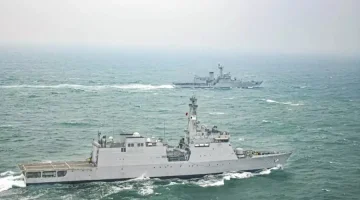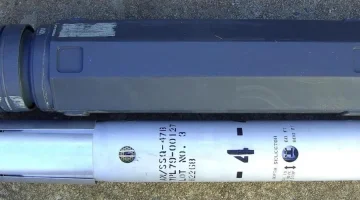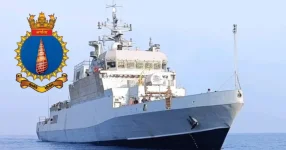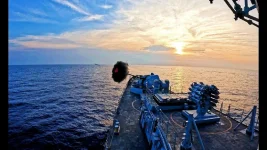- Views: 2K
- Replies: 9

The Indian Navy is poised to significantly enhance its maritime capabilities in early 2025 with the commissioning of two key vessels: the final Scorpene-class submarine, INS Vagsheer, and the first of the new Nilgiri-class stealth frigates.
Originally slated for December 2024, the commissioning of both vessels has been shifted to January 2025, according to sources within the defence establishment.
INS Vagsheer, the sixth and last of the Kalvari-class (Scorpene-class) submarines, marks the culmination of a project initiated in 2005. Built by Mazagon Dock Shipbuilders Limited (MDL) in collaboration with France's Naval Group, these submarines are designed for a variety of missions, including anti-surface and anti-submarine warfare, intelligence gathering, and special operations. Equipped with six weapon-launching tubes and capable of carrying 18 torpedoes or missiles, the Scorpenes bolster India's underwater combat capabilities.
The first Kalvari-class submarine, INS Kalvari, was inducted into the Indian Navy in 2017. Notably, MDL is also slated to build three more Scorpene-class submarines for the Indian Navy under Project 75, with the contract expected to be finalized by next month.
In addition to INS Vagsheer, the Navy will also commission the first of its seven new Nilgiri-class stealth frigates. These advanced warships, also built by MDL, are based on the Shivalik-class frigates but boast improved stealth features, indigenous weapons and sensors, and integrated construction methodology. According to the Ministry of Defence, the P17A frigates offer "improved survivability, sea keeping, stealth and ship manoeuvrability".
These additions to the Indian Navy come amidst growing geopolitical challenges in the Indo-Pacific region. The Scorpene-class submarines and Nilgiri-class frigates are expected to play a crucial role in maintaining sea control, safeguarding vital sea lanes, and ensuring the security of India's maritime borders.
This news comes on the heels of other recent additions to the Indian Navy's fleet. On December 9th, 2024, INS Tushil, a Russian-built frigate, was commissioned into India's Western Fleet. Furthermore, the second Survey Vessel Large (SVL) ship, Nirdeshak, is scheduled to be commissioned on December 18th, 2024. These vessels contribute to India's growing naval strength and its ability to project power in the region.




